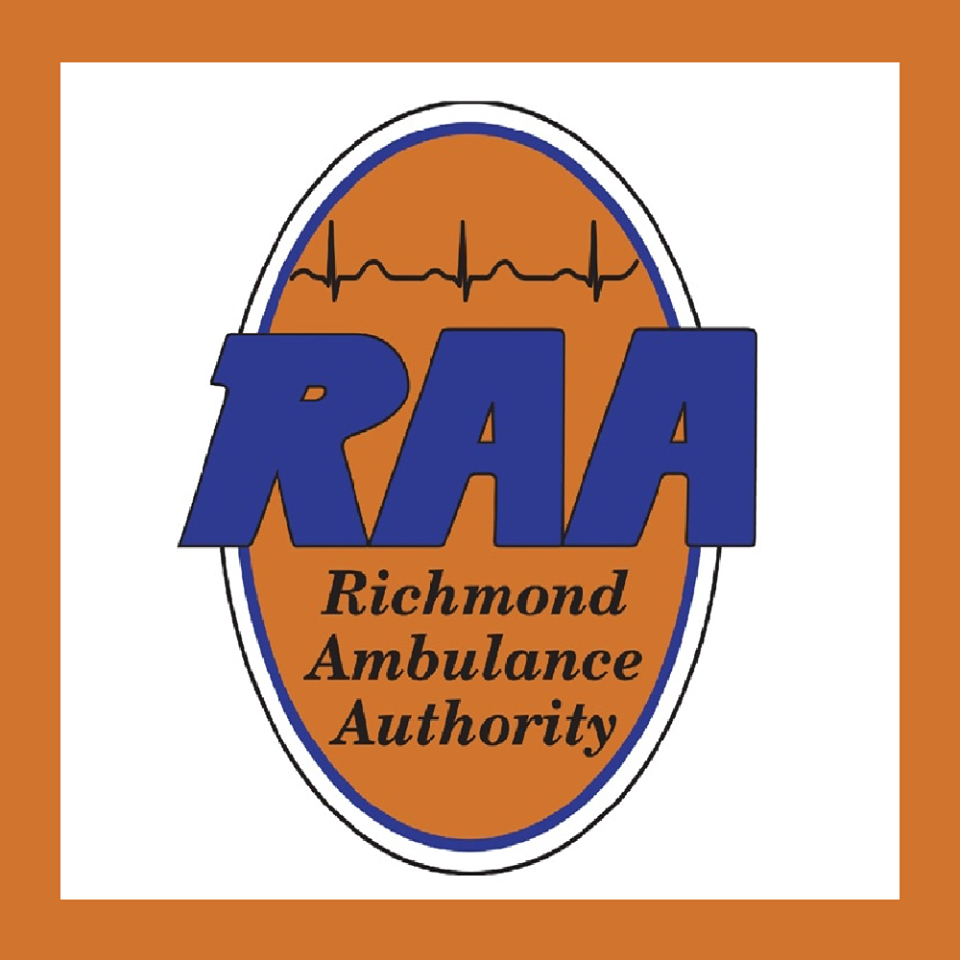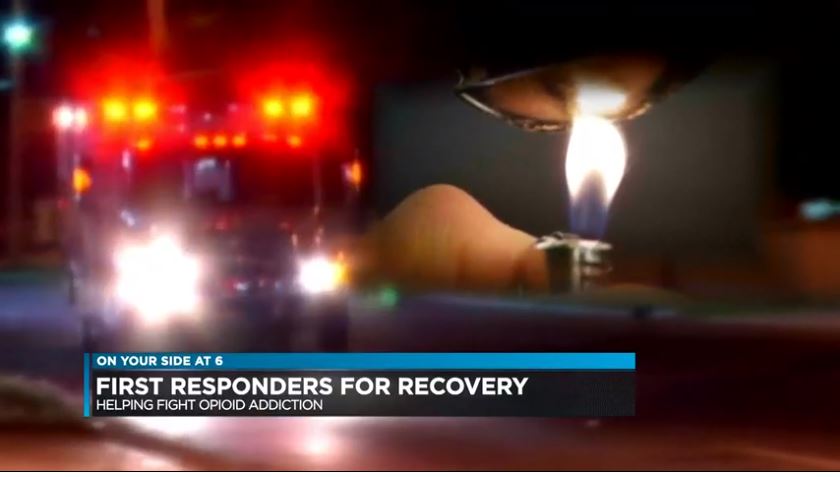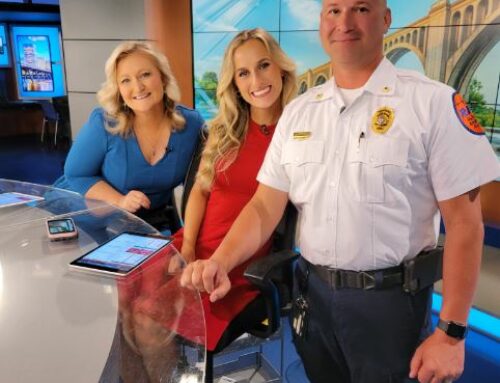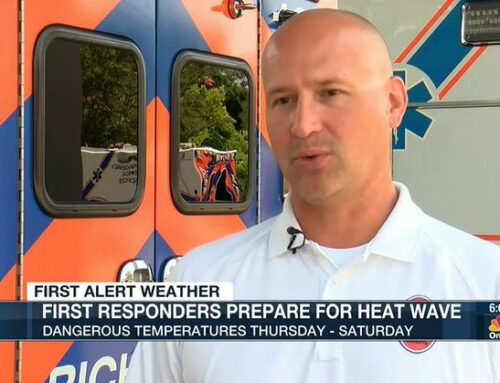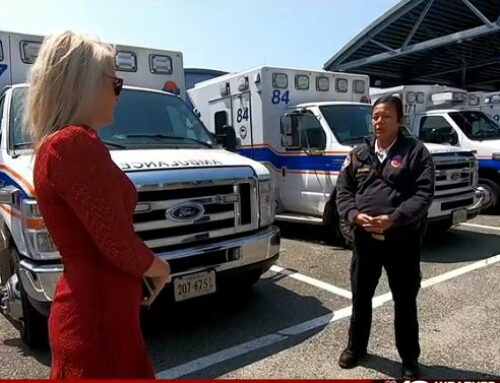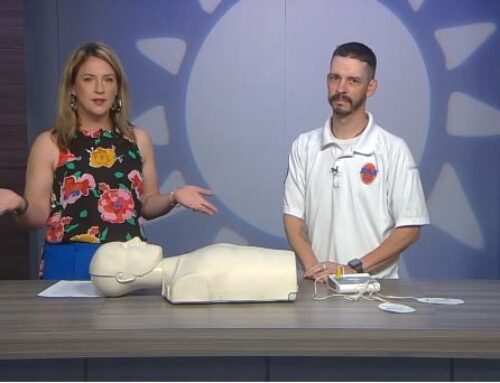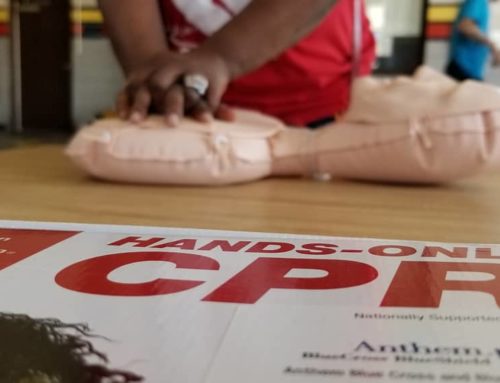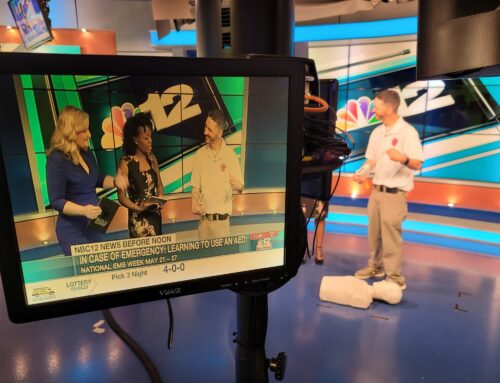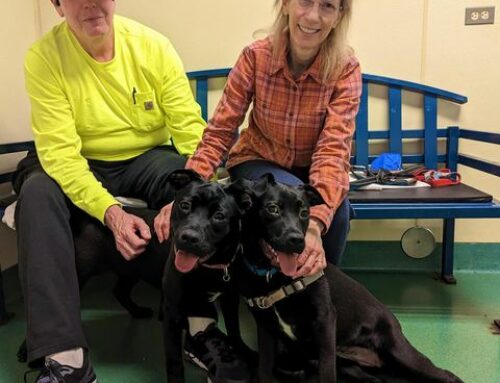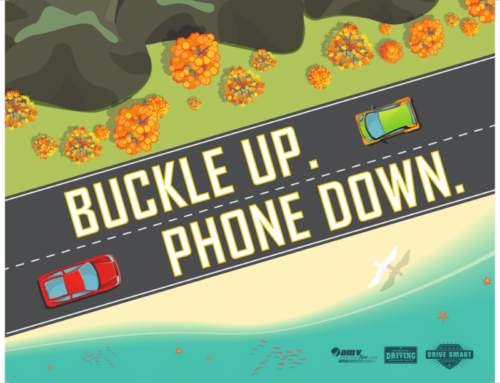This story originally appeared on NBC12.com
RICHMOND, Va. (WWBT) – A recovering heroin and cocaine addict is using her experience to help Richmond first responders and the health district combat the opioid epidemic.
Courtney Nunnally is at the center of a new program called “First Responders for Recovery”.
It’s spearheaded by the Richmond Ambulance Authority (RAA) and the Richmond City Health District (RCDH) to cut down on the number of people addicted to opiates.
“While Narcan has been an important tool in our fight to keep opioid addicts alive, more must be done to help our patients stay alive by connecting them to recovery resources,” said RAA CEO Chip Decker in a news release. “We’re hopeful as word spreads about this program, we can begin to remove the stigma of addiction and help loosen the grip opioids have on our communities.”
At a news conference held Friday, in recognition of International Overdose Awareness Day Saturday, Nunnally was introduced as the Peer Recovery Specialist for the RCHD.
“I think this is a fantastic opportunity to offer that hope to treat people differently,” Nunnally said. “You don’t have to do anything special. You just have to treat people like they’re human.”
Nunnally knows all too well the struggles of addiction, finding herself addicted to heroin seven years ago.
“I had no one left; I wanted to die,” Nunnally said. “I thought everyone was better off without me… You have to learn how to live again, you have to learn how to live without numbing the pain, facing all that trauma, dealing with your past,” she said.
Nunnally’s past is traumatic. She lost her brother and mother when she was young, turning to substances to cope. In her mid-20′s she was involved in a car accident that led to a long-term prescription of opiates.
“I was thinking the doctor wasn’t fixing the problem so, being the smart person I am, I ripped up by prescription and threw it on the floor and told the doctor I didn’t need the pills,” Nunnally said. “I didn’t know anything about addiction at that time, but I woke up the next morning and found out real quick.”
That addiction led to buying pills on the street and to heroin. After several relapses and jail time she connected with two officers who helped turn her life around.
“They knew if I stayed out on the street I would die,” Nunnally said. “I didn’t see the point in living as a slave to heroin but I was offered hope. This program is a way for me to give others hope and a path to recovery and I really believe it will save lives.”
Now she’s teaching first responders ways of connecting with patients to get them to sign a First Responders for Recovery release form.
“As first responders you have a unique opportunity to offer hope and support who no longer have it,” Nunnally said.
Once these patients sign the form, Nunnally has 48 hours to contact them and try to get them into a recovery center.
“One of my biggest arguments was you don’t know, you haven’t been there,” Nunnally said. “I take that ammo away from individuals… This is not a job for me. This is a passion that I was led to this road.”
“Her passion for and commitment to providing non-judgmental and authentic support to every client she encounters is at the heart for First Responders for Recovery,” said Deputy Director of RCHD Dr. Melissa Viray.
Since 2013, deadly drug overdose has been the leading cause of unnatural death in the state, according to a news release from the RAA and RCHD.
“We know we can’t just treat the overdose and then not let the person get the services that they really need,” said Virginia Attorney General Mark Herring. “Because the overdose is really just the symptom, the disease is addiction.”
“Together we are better able to address this public health crisis that afflicts many of the communities, families and individuals that make Richmond a diverse and vibrant community,” Viray said.
The program is based on a program created by the St. Charles County Ambulance District in St. Charles County, Missouri.
Before the creation of the program, St. Charles County was seeing a 17-21% increase in suspected overdoses per year.
“After implementing the program in 2017 [they] saw those number plateau last year,” Decker said. “We just learned they’ve seen a 25% decrease in suspected overdoses in the first half of 2019.”
“By working together, you all are really closing that gap and making services available immediately when the person needs it the most,” Herring said.
The “First Responders for Recovery” program officially launched in May. Since its launch, 29 patients have signed a release form; three of those patients successfully connected to a recovery center.
Friday’s announcement of the new program comes the same week that law enforcement officials in Virginiaannounced that they’ve busted a multi-state drug ring and seized enough cheap fentanyl to kill 14 million people.
Fentanyl is a synthetic opioid that can be much stronger and more lethal than heroin. It’s often mixed with heroin and other drugs.
One of the 39 people who’ve been charged had ordered the drug from Shanghai to the city of Newport News through the U.S. mail.
